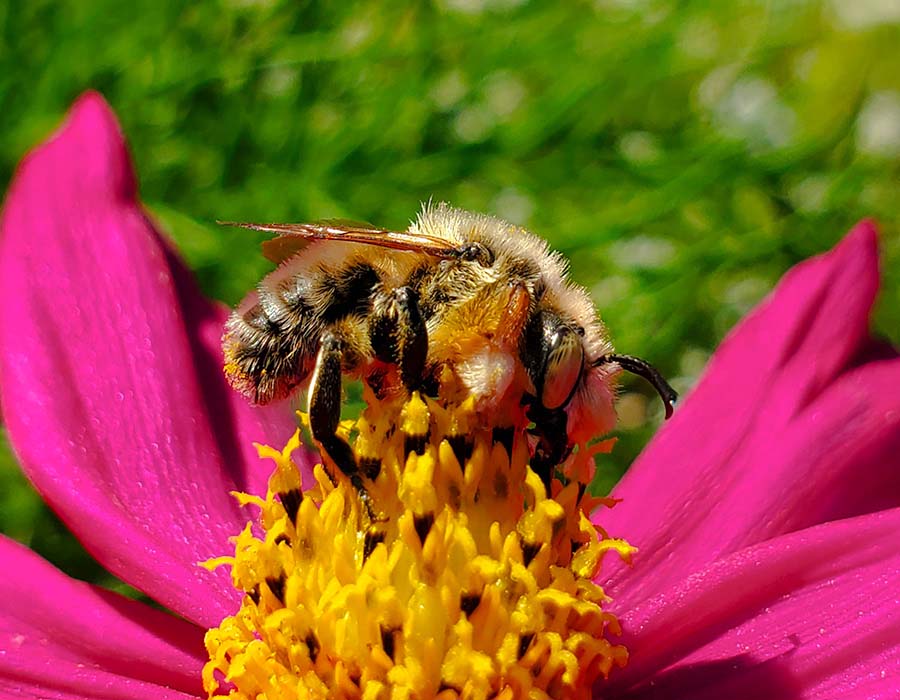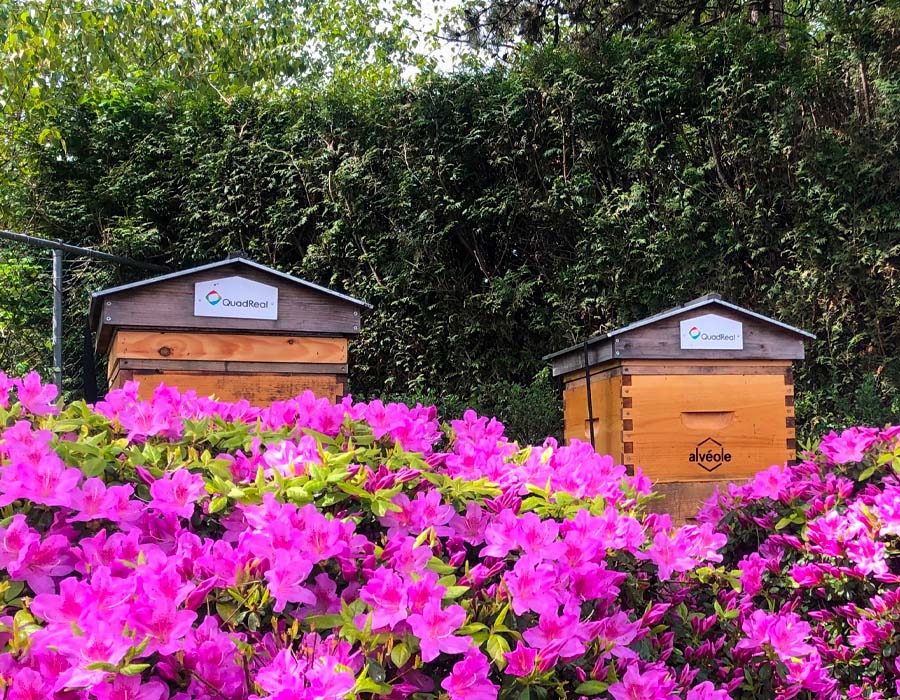-
URBAN BEEKEEPING & HOTEL FOR BEES
Turn your property into a welcoming space for bees
For such small creatures, bees make a big impact. This easy to implement, sustainable solution inspires communities
and organizations to do more for the environment. Through an engaging and educational experience, our aim is to make more people fall in love with all bees and take action to protect them.
-
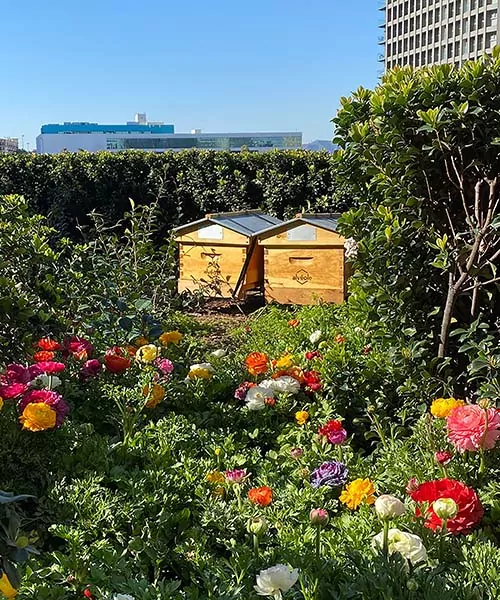
-
Bring your community together with an inspiring and sustainable program
Reconnect your employees, tenants, and customers with nature in the city through our urban beekeeping and bee hotel program.
✔️ Create meaningful and educational experiences
Bond over your unique bee experience and raise environmental awareness with engaging team building activities.
✔️ Improve your property’s environmental impact
Support pollinator populations, earn points towards green building certifications, and measure your sustainable impact through data collected by your own bees.
✔️ Green up your neighborhood
Receive bee-friendly planting recommendations based on scientific data from your own hive.
Your unique bee experience
This sustainable program promotes the protection of both honey bees and wild bees. Discover the fascinating
world of urban beekeeping while also contributing to safer habitats for all pollinators.
![]()
Team building activities
Bond over your bee program and connect with your employees, tenants, or community members.
![]()
Honey bee hive installation and care
We install your branded beehive and provide regular beekeeping maintenance and management throughout the season.
![]()
Solitary bee hotel installation and maintenance
Provide solitary bees with a safe place to nest and help prevent habitat loss.
![]()
Dedicated urban beekeeper
Your beekeeper is there to answer all your questions and ensure the health and happiness of your bees.
![]()
Real-time updates
Follow updates about your bees’ health provided by your beekeeper via our interactive online platform, MyHive.
![]()
Visibility and marketing tools
Spread the word about your corporate sustainability program with brandable and eco-friendly corporate gifts and ready-to-use marketing tools.
![]()
Customized ultra local urban honey harvest
A sweet benefit of hosting honey bees on your property: delicious jars of honey at the end of each season.
![]()
Bee-friendly garden consultation
Create a bee-friendly oasis by following planting recommendations based on data from your hive.
A customized solution to meet your needs
Impact your corporate sustainability management plan.
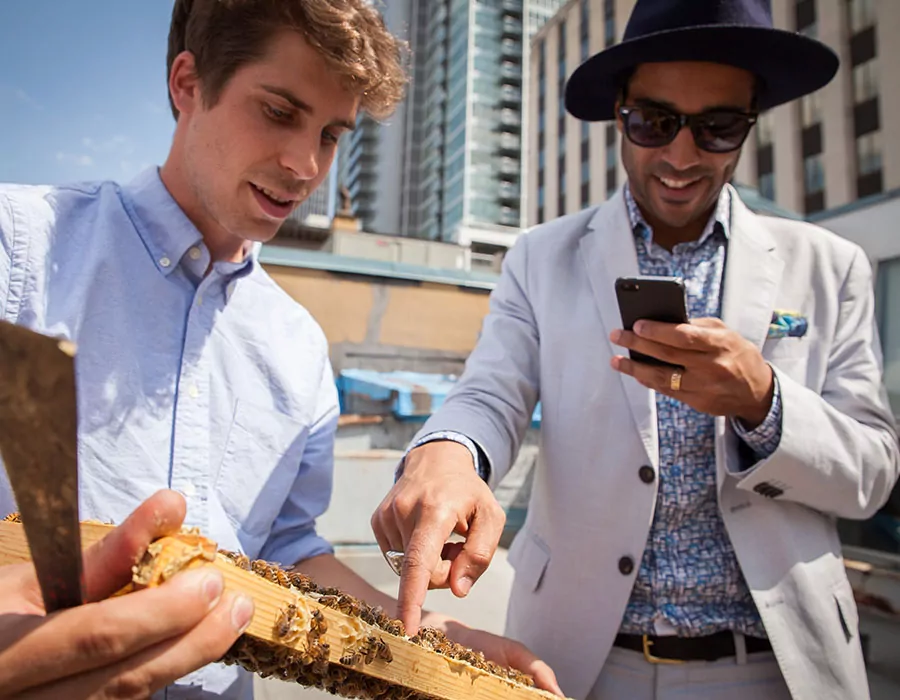
Commercial Real Estate
Repurpose unused space on your property to stand out from the crowd and increase tenant retention.
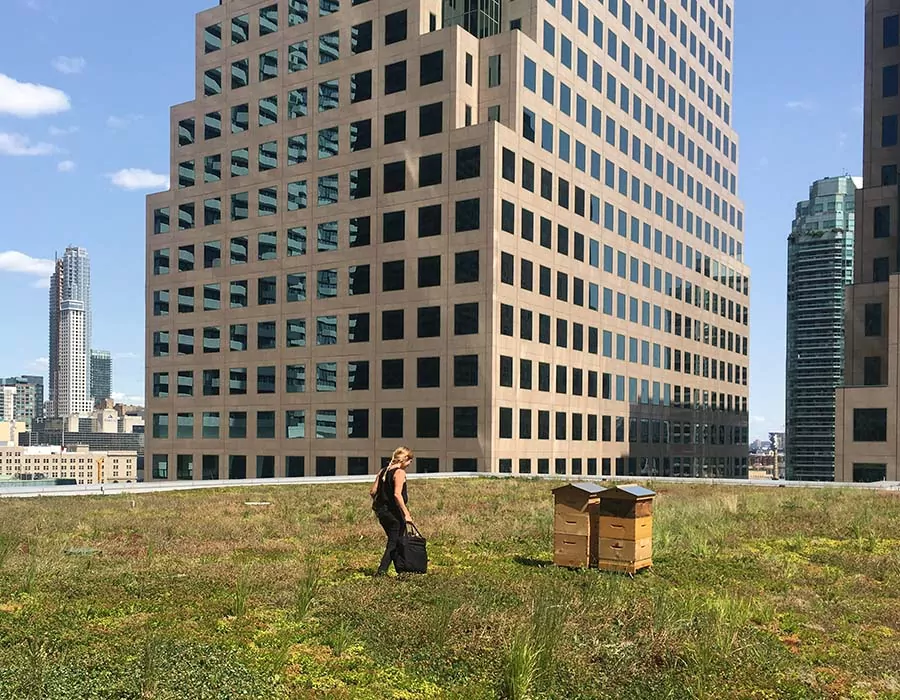
Corporate
Further your sustainability initiatives and ESG strategy with a unique engagement program.
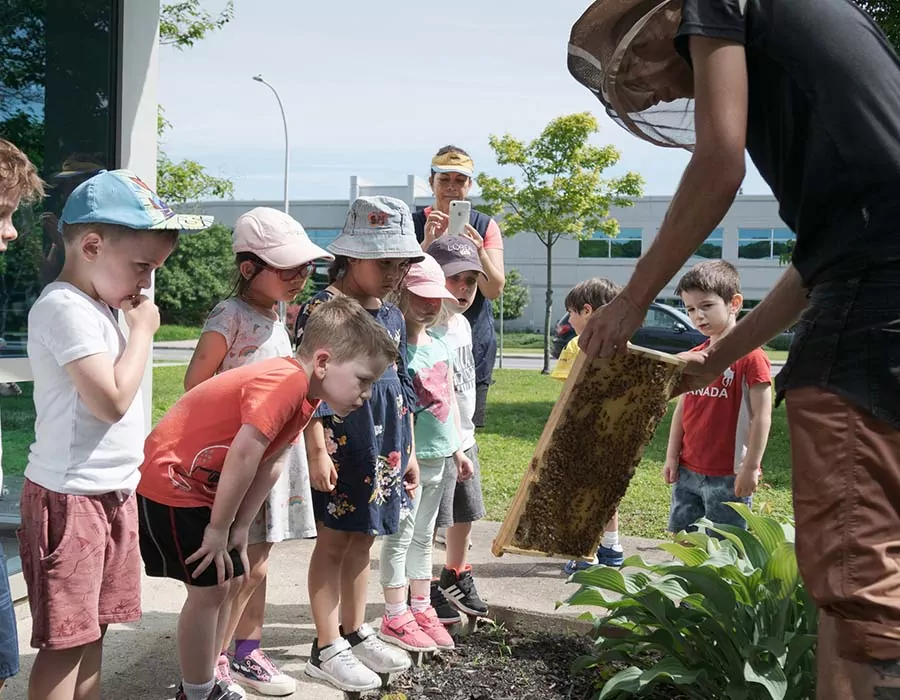
School
Get hands-on with nature – these programs offer endless opportunities for cross-curricular educational exploration.
Launch your sustainable bee program in 4 easy steps
1
Our team of specialists will assess your needs
An urban beekeeping advisor will work with you to better assess your goals, talk safety and insurance, and answer any questions.
2
Hive and bee hotel installation, maintenance, and care
Your dedicated beekeeper will install and care for your hive and bee hotel to ensure all the bees are happy and healthy.
3
Activate your MyHive page and schedule your team building activities
See scheduled hive visits, book team building activities, and share your MyHive page with your community.
4
Celebrate the season’s end with ultra local honey
Spread the word about your bee program with custom branded honey jars made by your own colony!
Answers to your questions
-
What are the benefits of a nature-driven bee program?
In a nutshell, a bee program:
• Brings people together around a common goal of improving the urban environment
• Highlights a variety of environmental issues (like industrial agriculture, pollination, and urban greening)
• Repurposes unused spaces to obtain green building certification points
• Produces an ultra-local honey harvest for your community to enjoy -
Is urban beekeeping safe?
Yes! At Alvéole, we work with a special breed of Italian honey bees selected for their docility. Honey bees are gentle creatures who (almost) never sting without reason. Unless they feel threatened, bees have no motivation to sting – in fact, once they sting, they lose their stinger along with a part of their abdomen, and die.
Wild bees are as peaceful as honey bees. They technically can sting, but they don’t. Docile and nonterritorial, they’re extremely gentle. Unless they’re being touched, they simply go about their business.
Of course, beekeeping comes with additional responsibilities when practiced in the city. Choosing a good supplier is key – here’s what to look for when choosing an urban beekeeping partner.
-
How much space does a honey bee hive and a bee hotel need?
The installation of a honey bee hive does not require a lot of space. A clear 2-meter/6-foot diameter is enough. The Alvéole team will assist you in choosing the ideal spot for your hive. If you’re unsure whether your property has space to host a hive or bee hotel, our team will be happy to conduct a free site assessment.
-
When do you install hives and bee hotels?
The beekeeping season varies depending on the region and climate. Our team will be able to advise you on the best time to start your program in your region. Learn more in the commercial and office building’s guide to a beekeeping season.
-
What is a bee hotel and why are they important?
A bee hotel provides a safe place for solitary bee species to nest, helping to bolster their local population. Solitary bees are a type of wild bee that lives alone rather than in a colony. Bee populations are in decline largely due to habitat loss and a bee hotel is one way to support pollinators in the city.
-
What is the difference between a honey bee and a wild bee?
The European honey bee (the species occupying beekeepers’ hives all around the world) is just one of 20,000 different bee species. Honey bees are domesticated, live in colonies in hives, and produce honey.
Wild bees, on the other hand, are undomesticated, often live alone, nest in plant cavities or in the ground, and mostly do not produce honey.
Both types of bees play an important role in pollination.
-
What is pollination and why are bees so important?
Pollination happens when pollinators, like bees, take the pollen from the male part of a flower and deposit it on the female part of another flower. In order to produce fruit, a plant must be pollinated.
Over one third of everything we eat wouldn’t exist without pollination – pollinators are an essential part of our food systems!
Keep learning
Ready to launch your sustainable bee program?
Let an urban beekeeping advisor assess your needs today.



